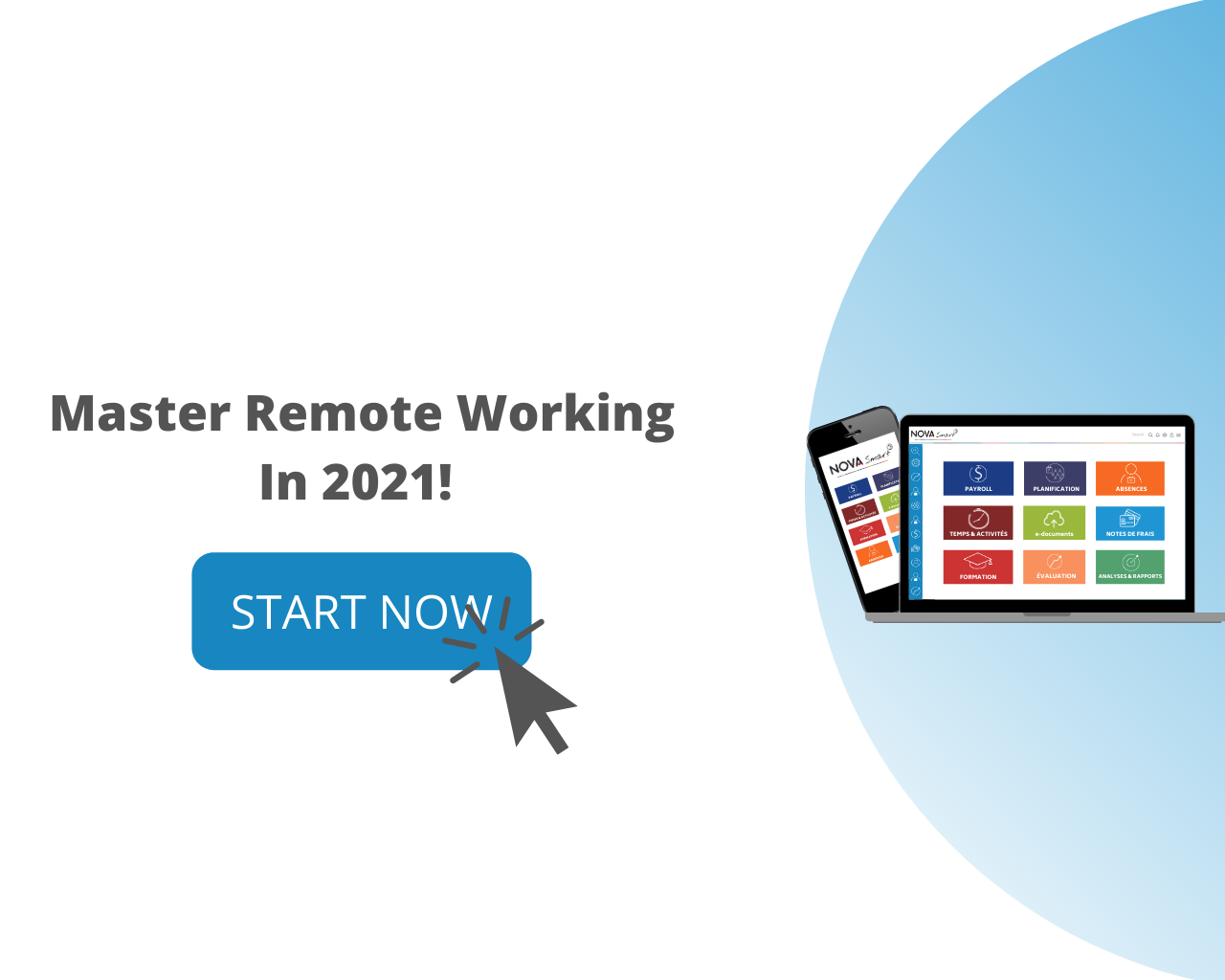Is managing absences remotely a challenge? Make your remote absence management a success with our top tips and best practices!
HR management has evolved considerably over the last year and will undoubtedly evolve even more in the future, especially since the share of employees working from home has significantly increased. Managing absences was much easier when working in an office: You simply checked the desk of your co-worker or employee and know immediately who is present and who is not. Managing absences remotely can be a challenge as we are not used to communicating full time behind computer screens and not seeing our colleagues 5 days a week.
However, it is not the only challenge. Another one consists of reducing absenteeism and fostering a positive and cheerful atmosphere at work.
Find our top tips and best practices to successfully conquer these challenges!
Our Top Tips for a Remote Absence Management!
#1 Opt for a smart system
With a smart system, you get a precise overview of your team’s activities and attendance at any time.
A smart HR software system will integrate a set of modules and functionalities to give you the best experience. It will take into account your employees’ absence data and integrate it into payroll, work scheduling or offer you a range of analysis based on the number of absences, type of absences and much more. In a remote working context, it will be one of your best allies to ensure efficient and accurate absence management.
#2 Manage efficiently COVID-19 related absences
A clear and global overview of absences will be an asset when managing COVID-19 related absences.
With COVID-19, HR departments have quickly been overwhelmed. Between absences due to sickness, those to childcare, employees having to stop working temporarily and those having to keep working full time, managing absences has not been easy. Managers and HR soon realized that a digital and smart system was needed to save a significant amount of time and gain clarity.
#3 Be clear about your expectations
By communicating clearly about when your employees are supposed to work, you will be better organized and avoid unplanned absences.
When working remotely, it is more important than ever to make clear communication a priority. It is advisable to draw up a telework policy with conditions, expectations and objectives. For absence management, this is more than recommended. You should clearly say to your teams when it is mandatory to work (specific time slots, specific days…). The most effective solution would be to provide a shared space with these rules so that everyone can have access to it and stay informed.
#4 Encourage your team to plan their time off
Planning time off in advance will motivate your employees and will give you time to get ready and organized for when they will be off.
What could be more motivating than knowing you’re going to be on vacations soon? That’s definitely one of the main advantages of planning time off in advance! Your employees will be more productive and motivated and will be less likely to have unjustified absences. Also encourage them to take a long break so that they can fully rest and come back in great shape! For you as an employer, knowing when your team members are off, will allow you to distribute work & responsibilities to other employees straight away.
#5 Be flexible and available
Being flexible and available will show your employees that you care about their private life and well-being.
In unprecedent times such as the COVID-19 pandemic, being understanding and flexible is crucial. By allowing flexible working hours, you minimize the risk of unexpected absences showing your employees that you trust them in doing their job responsibly. Some of your teammates may be parents and will appreciate being able to organize their working day differently to respect the balance between professional and family life. Being available will allow you to understand the needs of your employees. It can be difficult to concretely measure employees’ progress and achievements when they are working remotely. That’s why communication plays a great role. Don’t forget to thank and congratulate them, it’s a great boost to motivation!
#6 Foster a friendly atmosphere at work
Having a nice and cheerful atmosphere at work is one of the most important factors of well-being. When the employees feel involved in the company’s success, they perform better.
Maintaining a positive and friendly atmosphere at work when most of the team behind a screen is a challenge, but it’s possible! You can always have the same little habits you used to have at the office like coffee time, relaxing moment, etc.
#7 Collect and analyze employee absence data
Analyzing absence data will allow you to see if your management is successful and to identify absence patterns.
Absence data is a very useful tool to identify absence patterns. For example, if you can see in the figures that there is a lot of unexpected and unplanned absences, you can try and change it by adopting a different management approach or implementing modified work schedules. It’s also opens the door to communicate with your team and ask them how they feel at work.









